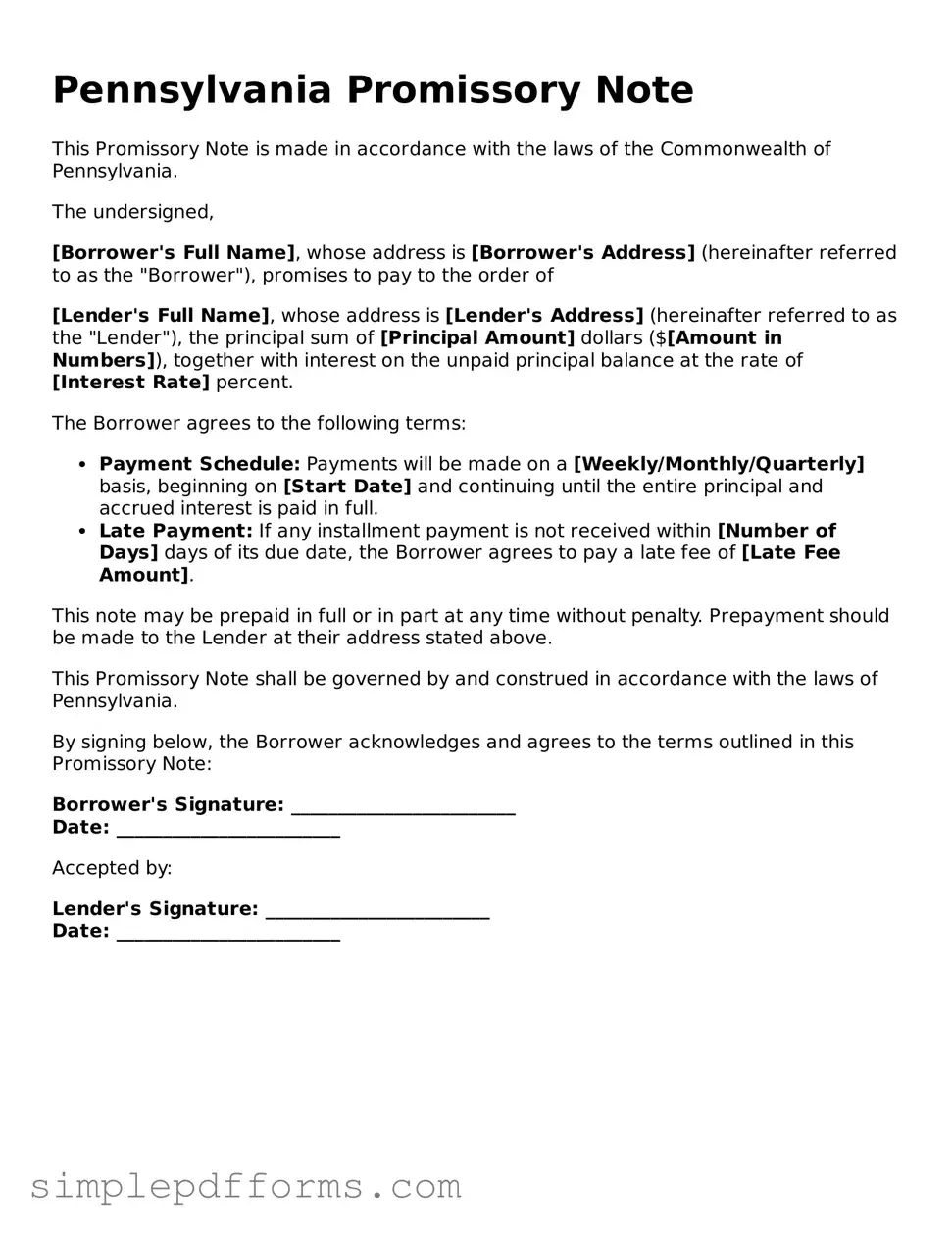Attorney-Verified Promissory Note Document for Pennsylvania State
A Pennsylvania Promissory Note is a legal document that outlines a borrower's promise to repay a specific amount of money to a lender under agreed-upon terms. This form serves as a written record of the transaction, detailing the repayment schedule, interest rate, and any other relevant conditions. Understanding this document is essential for both borrowers and lenders to ensure clear communication and protect their rights.
Open Promissory Note Editor Now

Attorney-Verified Promissory Note Document for Pennsylvania State
Open Promissory Note Editor Now

Open Promissory Note Editor Now
or
Get Promissory Note PDF Form
Your form is waiting for completion
Complete Promissory Note online in minutes with ease.